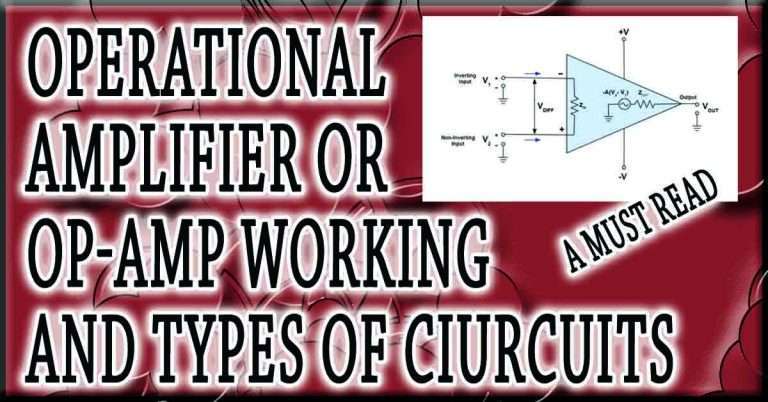How to Start an Electrical Contracting Business: Best Guide
Starting your own electrical contracting business can be a rewarding and profitable decision. Whether you’re a licensed electrician looking to move up or an investor exploring the electrical services sector, this guide will walk you through every essential step. From licensing to bidding for jobs, managing teams to ensuring compliance—running an electrical contracting company demands a blend of technical expertise and business skills.
The demand for electrical services is rising consistently. Homes, factories, data centers, and EV infrastructure need reliable electrical contractors. With growing interest in smart homes, solar installations, and energy efficiency, now is an excellent time to enter the electrical contracting market.

However, success doesn’t come just by owning tools and a license. Starting an electrical contracting business requires careful planning, compliance with legal requirements, and a deep understanding of industry operations. If you’re committed, organized, and ready to learn, you can build a business that not only survives but thrives in a competitive landscape.
Key Takeaways
- You must have the right licenses, insurance, and certifications before starting.
- A good business plan helps in funding and long-term success.
- Knowing your local market and pricing jobs accurately is key to profitability.
- Building a team of qualified electricians and project managers is crucial.
- Focus on marketing and customer retention to grow consistently.
Know more about Electrical Equipment Suppliers in UAE
Understanding the Electrical Contracting Business
An electrical contracting business involves the installation, maintenance, and repair of electrical systems in residential, commercial, or industrial settings. Contractors may work on small homes or large construction projects. They handle everything from simple wiring to complex power distribution systems.
There are two main types of electrical contractors:
- Line contractors: Deal with high-voltage systems such as transmission lines and outdoor infrastructure.
- Inside contractors: Work on interior power systems, cabling, lighting, and control systems in buildings.
You can choose to specialize or offer both services. Whichever direction you take, ensure your operations comply with local codes and national standards such as the National Electrical Code (NEC).
Know more about Electrical Contractor Insurance Cost Texas
Licenses and Certifications You’ll Need
Licensing is a legal requirement and gives your clients confidence. The type of license required varies by location. In general, you’ll need:
- Electrical Contractor License
- Journeyman or Master Electrician License
- Business License
- Trade-specific permits for certain work like solar, fire alarms, or data cabling
Besides licenses, you’ll also need certifications for safety and quality assurance. These include:
Know more about Electrical Equipment Suppliers in UK
| Certification | Purpose |
|---|---|
| OSHA 10/30 | Worker Safety Training |
| NABCEP | For solar electrical work |
| NFPA 70E | Electrical safety in the workplace |
| ISO 9001 | Quality management (for larger contractors) |
Always check with your state licensing board for updated rules. Some states require passing an exam to demonstrate technical competence and knowledge of local building codes.
Know more about Electrical Contractor Insurance Cost Ireland
Creating a Business Plan for Your Electrical Contracting Company
Your electrical contracting business must start with a solid plan. A good business plan defines your market, services, competition, and financial projections. It helps you understand your startup costs and operational needs.
Here’s what your plan should include:
- Executive Summary: Mission, vision, and goals
- Services Offered: Residential wiring, industrial automation, solar, EV charging, etc.
- Market Analysis: Identify your target clients and competitors
- Marketing Plan: How you will promote your business
- Operational Plan: Staffing, equipment, scheduling
- Financial Plan: Cost estimates, profit margins, break-even point
Know more about Building Management System (BMS) Installation
Typical Startup Costs
| Expense Item | Estimated Cost (USD) |
|---|---|
| Licensing and Permits | $1,000 – $3,000 |
| Insurance and Bonding | $2,000 – $8,000 annually |
| Tools and Equipment | $10,000 – $50,000 |
| Office Setup | $2,000 – $5,000 |
| Vehicle Purchase or Lease | $20,000 – $40,000 |
| Marketing Budget | $1,000 – $5,000 |
| Employee Wages and Training | Varies based on team size |
Always keep a 3-6 month reserve for unexpected costs. If you plan to grow fast, seek funding from small business loans or equipment financing options.
Know more about Electrical Insurance Cost Per Month in UK
Choosing the Right Services to Offer
Many new business owners make the mistake of trying to offer every service. It’s smarter to specialize at first. Some profitable services include:
- Residential and commercial wiring
- Generator installations
- Electrical panel upgrades
- Solar system wiring
- EV charger installation
- Data and network cabling
- Smart home systems
Your choice of services should depend on your skills, team experience, and market demand. For example, offering EV charger installations in urban areas can be highly profitable due to the surge in electric vehicle adoption.
Building Your Electrical Team
You can’t run a successful electrical contracting business alone. A skilled, reliable team is your biggest asset. Start by hiring at least one licensed master electrician and a few journeyman electricians.
Also consider support staff for estimating, invoicing, scheduling, and customer communication. Use digital tools like field service software to assign tasks, track time, and manage customer requests.
Know more about top Electrical Insurances for Home in USA
Typical Roles in a Small Electrical Contracting Business:
| Role | Responsibilities |
|---|---|
| Master Electrician | Technical oversight, permit sign-off |
| Journeyman Electrician | On-site installations and repairs |
| Project Manager | Job coordination, timelines, material procurement |
| Estimator | Preparing bids, job costing |
| Office Administrator | Billing, scheduling, and customer support |
Ensure everyone follows safety protocols and gets proper training. A single mistake on a job site can damage your reputation and increase liability risks.
Tools and Equipment You’ll Need
You’ll need both basic and advanced tools. Start with:
- Voltage testers and multimeters
- Wire strippers and crimpers
- Power drills and saws
- Conduit benders
- Ladders and safety gear
- Thermal imagers and cable locators (optional but useful)
Buy quality tools that last long and reduce jobsite delays. If you plan to work in heavy industrial or solar projects, invest in specialized equipment and safety kits.
Know more about Green Building Electrical Design
Marketing Your Electrical Contracting Business
Getting your first few clients is the hardest. Use both online and offline strategies to build trust and visibility.
Start by:
- Creating a professional website with your services, contact info, and customer reviews
- Listing your business on Google Business Profile, Yelp, and local directories
- Running ads on Facebook, Google, or local trade platforms
- Offering referral discounts and loyalty programs
- Partnering with real estate agents, general contractors, and property managers
Word-of-mouth is still the most powerful tool in this industry. Always provide excellent service and follow up for reviews.
Pricing Your Services Smartly
Setting the right price is critical. Underpricing can hurt profits, while overpricing drives clients away. Use this basic pricing structure:
Hourly Rate Model
- Apprentice: $30–$40/hour
- Journeyman: $50–$70/hour
- Master Electrician: $80–$120/hour
Fixed Pricing (per job)
| Service | Typical Range (USD) |
|---|---|
| Breaker Panel Replacement | $1,500 – $3,000 |
| Home Rewiring | $4,000 – $15,000 |
| Ceiling Fan Installation | $100 – $300 |
| Generator Wiring | $2,000 – $5,000 |
| EV Charger Install | $700 – $2,000 |
Use job costing software or spreadsheets to calculate labor, materials, permits, and overheads. Always leave a profit margin of at least 15–20%.
Know more about Energy Audit for Commercial Buildings
Insurance and Legal Considerations
Operating without insurance is a major risk. You’ll need:
- General Liability Insurance
- Workers’ Compensation
- Vehicle Insurance
- Tools and Equipment Insurance
- Surety Bonds (required in many states)
Keep proper documentation for contracts, change orders, inspection reports, and safety checklists. Use digital contract software to streamline paperwork and avoid disputes.
Staying Compliant and Up-to-Date
Electrical codes change frequently. Join professional associations like:
- National Electrical Contractors Association (NECA)
- Independent Electrical Contractors (IEC)
- Your local builders or trade associations
Attend seminars, webinars, and trade expos. Get training on new technologies like smart meters, lithium battery systems, and AI-based energy monitors. A future-ready electrical contracting business stands out from the competition.
Scaling Your Electrical Contracting Business
Once your business is stable, think about growth. You can:
- Open branches in nearby cities
- Bid on government or commercial projects
- Offer maintenance contracts
- Add design and consulting services
- Invest in solar or EV charging niche
Use software to track KPIs like job completion time, customer retention, profit margins, and labor efficiency. Scaling without data is a recipe for chaos.
Final Thoughts
Starting an electrical contracting business takes more than tools and talent—it takes a plan, legal compliance, smart pricing, and a commitment to excellence. With increasing energy demand and a skilled labor shortage, well-managed contracting businesses are in high demand. Focus on quality, reliability, and continuous learning to stay ahead.
Follow Us on Social:
Subscribe our Newsletter on Electrical Insights for latest updates from Electrical Engineering Hub
#ElectricalBusiness, #ContractorLife, #ElectricalContractor, #StartupGuide, #BusinessStartup, #ElectricalIndustry, #ConstructionBusiness, #SmallBusinessTips, #ElectricianBusiness, #HowToStartABusiness, #ElectricalStartup, #BusinessSuccess, #ContractingTips, #Entrepreneurship, #ElectricalServices


